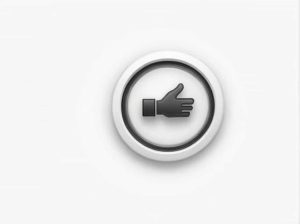How do we determine whether an action is right or wrong? Throughout history philosophers and ethicists have developed various theories of morality to explain how human actions should be judged. These theories help guide individuals societies and legal systems in making ethical decisions.
This topic explores the major theories of rightness and wrongness of actions including consequentialism deontology virtue ethics and moral relativism. Understanding these frameworks provides insight into how morality is defined and applied in different situations.
What Are Ethical Theories?
Ethical theories are structured principles that attempt to explain what makes an action morally right or wrong. They serve as a foundation for ethical decision-making in personal life business law and society.
Different ethical theories focus on different aspects of morality such as:
- The outcome of an action
- The intentions behind an action
- The virtues a person should develop
- The social and cultural context of morality
Now let’s examine some of the most influential theories of ethics.
1. Consequentialism: The Focus on Outcomes
What Is Consequentialism?
Consequentialism is an ethical theory that judges actions based on their consequences. If an action leads to a positive outcome it is considered morally right; if it leads to a negative outcome it is considered morally wrong.
Utilitarianism: The Greatest Good for the Greatest Number
A key branch of consequentialism is utilitarianism developed by philosophers Jeremy Bentham and John Stuart Mill.
- Principle: Actions are right if they maximize happiness and minimize suffering.
- Example: A doctor saving five patients by using the organs of one dying patient may be considered ethical under utilitarianism because it benefits more people.
Criticism of Consequentialism
- It may justify harmful actions if they produce good results.
- It is difficult to predict all consequences of an action.
- It can ignore individual rights in favor of the majority.
2. Deontology: The Importance of Moral Duties
What Is Deontology?
Deontology developed by Immanuel Kant is an ethical theory that judges actions based on moral duties and rules rather than outcomes.
The Categorical Imperative
Kant’s famous categorical imperative states that an action is morally right if it can be universally applied.
- Principle: Some actions are inherently right or wrong regardless of consequences.
- Example: Telling the truth is always right even if it causes harm. Lying is always wrong even if it benefits someone.
Criticism of Deontology
- It can lead to rigid moral rules that ignore context.
- It does not consider the importance of consequences in ethical decisions.
- It can be difficult to apply in complex situations.
3. Virtue Ethics: The Character of a Moral Person
What Is Virtue Ethics?
Virtue ethics developed by Aristotle focuses on the character of a person rather than specific actions.
- Principle: A good life is achieved by developing virtuous traits like honesty courage and kindness.
- Example: A virtuous person will always act with integrity even without external rules or consequences.
The Role of Moral Character
Instead of asking “What should I do?” virtue ethics asks “What kind of person should I be?” A morally good person will naturally perform good actions.
Criticism of Virtue Ethics
- It does not provide clear guidelines for moral decision-making.
- Virtues can vary across different cultures.
- It may not offer solutions for urgent ethical dilemmas.
4. Moral Relativism: Morality Depends on Culture
What Is Moral Relativism?
Moral relativism argues that there is no absolute right or wrong and morality depends on social cultural or individual perspectives.
- Principle: What is considered ethical in one culture may be unethical in another.
- Example: In some cultures arranged marriage is a moral tradition while in others it is seen as unethical.
Types of Moral Relativism
- Cultural relativism: Different cultures have different moral beliefs.
- Subjective relativism: Morality is based on personal beliefs.
Criticism of Moral Relativism
- It may lead to moral inconsistency.
- It can justify harmful practices if they are culturally accepted.
- It does not establish universal moral standards.
5. Divine Command Theory: Morality Comes from God
What Is Divine Command Theory?
This theory states that morality is determined by the commands of a higher power or divine being.
- Principle: Actions are right if they align with religious teachings.
- Example: The Ten Commandments in Christianity provide moral guidelines.
Criticism of Divine Command Theory
- Different religions have different moral teachings.
- It assumes the existence of a divine being.
- It may not apply to secular ethical discussions.
Applying Ethical Theories to Real-Life Situations
Ethical theories help address moral dilemmas in various fields such as:
1. Business Ethics
- Utilitarianism: A company may choose policies that benefit the greatest number of employees.
- Deontology: A business may follow strict ethical rules even if they reduce profits.
2. Medical Ethics
- Virtue Ethics: Doctors should act with compassion and integrity.
- Consequentialism: Treatments should be chosen based on their potential to save the most lives.
3. Legal Ethics
- Deontology: Lawyers should always follow legal rules even if they personally disagree.
- Moral Relativism: Laws should consider cultural differences in ethical perspectives.
The rightness or wrongness of an action depends on different ethical frameworks. While some theories focus on consequences others emphasize duty virtues or cultural perspectives.
By understanding these ethical theories individuals can make more informed moral decisions and contribute to a just society. Ethics is not always black and white but these frameworks provide valuable guidance in navigating moral dilemmas.

